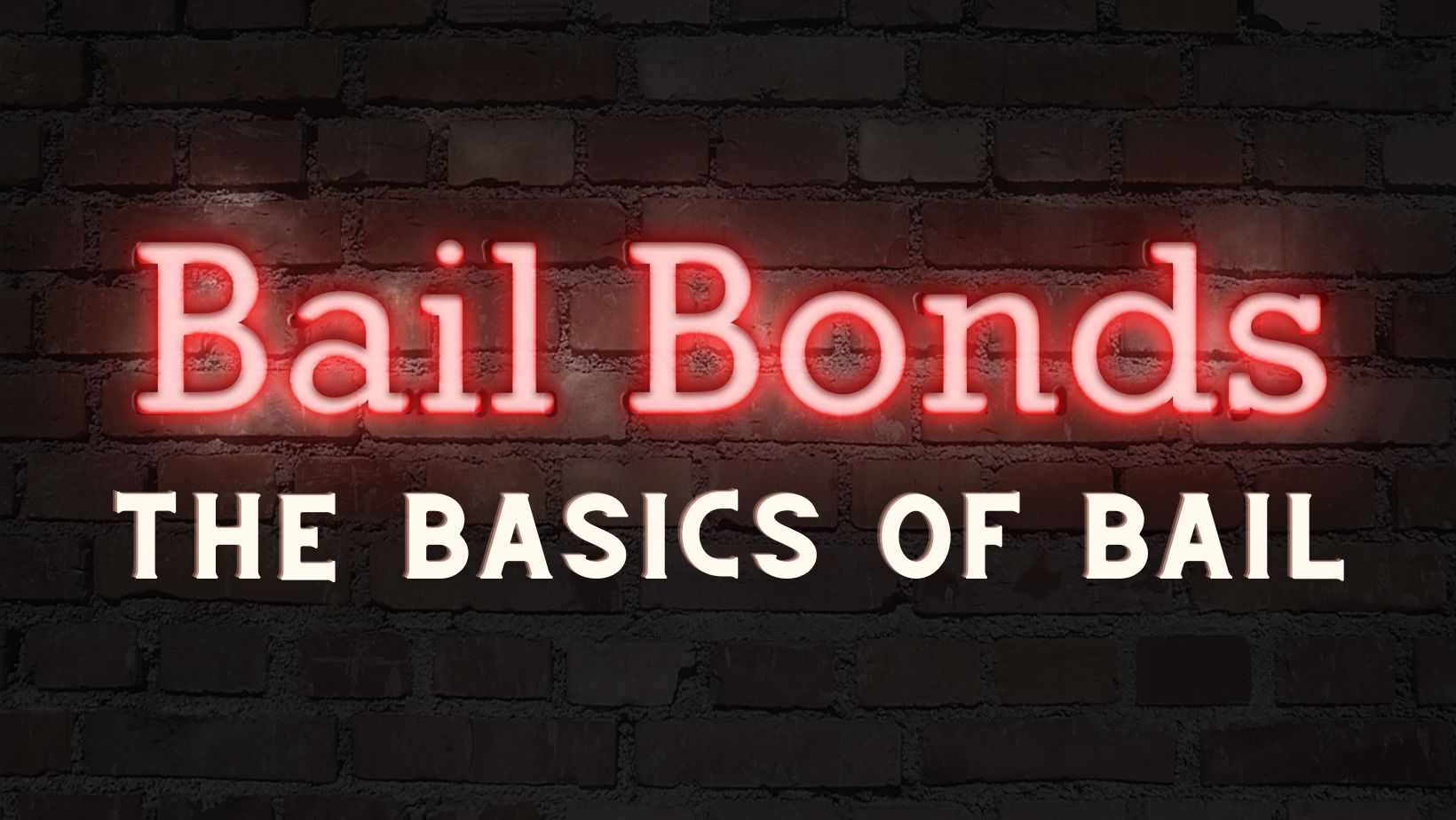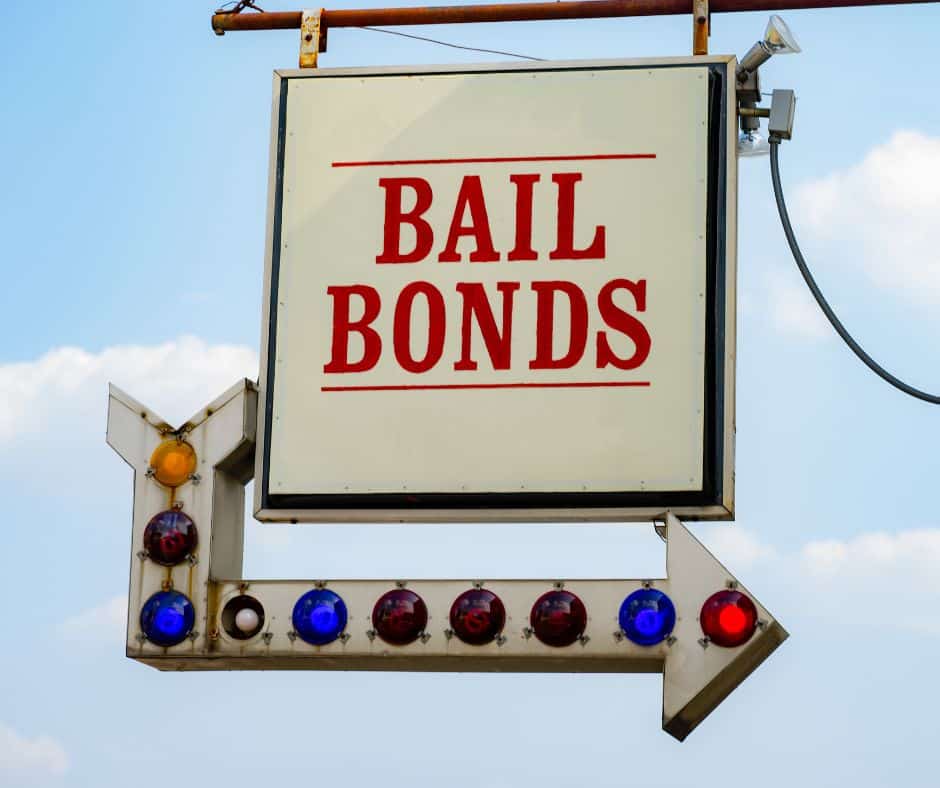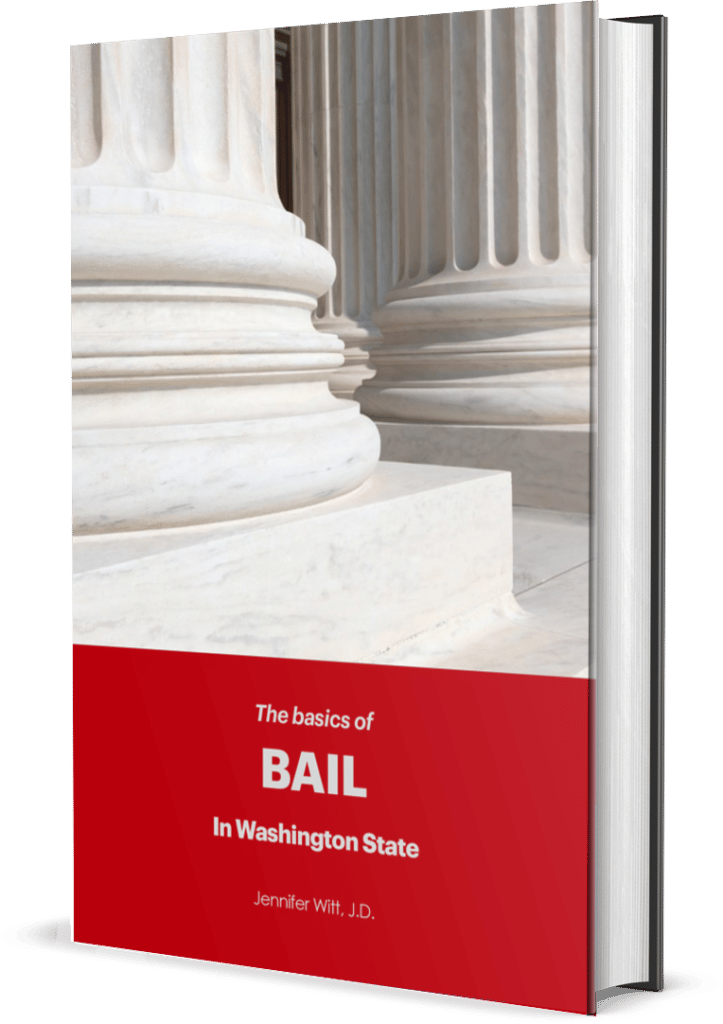
What is bail?
Bail is the amount an accused person must post to be released from jail to ensure the accused’s presence at all hearings up to the date of trial. It can be cash or a surety bond that is set by a judge, a suggested bail schedule, or the amount provided by the arresting officer at the time of booking.
Sometimes, whether you will need to post bail is determined by where you were arrested. For example, if you are arrested for DUI in Poulsbo, the Poulsbo officer may process you at the municipal station but decline to book you at Kitsap County jail. Instead, you could be released to a sober person who can take you home after the investigation is complete. You will be provided a date to appear for court in Poulsbo Municipal Court, where the judge may impose bail at your Arraignment but, most likely, will not. However, if it is your second DUI, the Poulsbo officer must take you to the Kitsap jail, where there will be a “no bail hold” due to your previous DUI offense.
Important Note:
Posting bond is the business of your bail bondsmen. Your attorney does not post bail or bond. This is the function of a bail bond company only. Your attorney is only involved in bail for the purpose of arguing against imposing bail or seeking a reduction in bail. If you pay a private attorney to represent you, that cost is for legal fees only and does not include any required bail set by the court. Attorneys do not act as bail bondsmen.
What are the factors in determining bail in washington
When judges set bail, they are weighing certain factors such as the risk of the defendant fleeing, the seriousness of the crime, whether a violent crime occurred, the safety of the community, and the defendant’s track record for abiding by previous court orders. After hearing information from the state prosecutor and the defense attorney, the judge will set an amount deemed necessary to secure the presence of the defendant at the next scheduled court date. The judge has discretion to impose no bail but still set conditions of release, whereupon the person must comply with certain behavior to avoid being arrested again.
Learn more on our Blog 3 Things To Know About Bail

Bail vs. Bond
Both bail and bond are terms to describe the process by which an accused can pay money and be released from jail. The difference in the terms depends on who is providing the money or promise to pay money to the court. The term bail is used to refer to the situation where the defendant posts the entire amount of bail in the form of cash or check. If the bail is set at $5000, the defendant will provide the entire amount to be held by the court to secure his presence at all hearings until the date of trial.
Bond refers to the use of a bail bonds service to essentially “vouch” for the defendant by promising that the person will appear at all court dates and comply with conditions of release. If the defendant fails to appear, the bail company will have to pay the entire amount of the bail. To “vouch” for a defendant, most bond companies will require a non-refundable 10% fee of the total bail set by the judge. So, if you need a bail company for your $10,000 bail, you will have to pay them a fee of $1,000 to use their service.
More on “making bail” with a bail bond company
A Surety Bond is when you use a bail bonding company to post bail in order to be released from jail. In essence, it is a contract between three parties. The three parties are:
(1) the Obligee. The Court is the Obligee because they receive the funds.
(2) the Principal. This is a criminal defendant who is making certain contractual promises to stay out of jail. (i.e. stay crime free and abide by other release conditions)
(3) The Surety. This is the bail bonding company. The bail bonding company “assures” the Obligee (the Court) that the Principal (the Defendant) will perform on what they are obligated to do.
How this works in real life is that a bail amount is set. Then, the defendant pays the bonding company roughly 10% of the full amount. Next, the bail bondsman posts to the Court an amount that is near the full amount of the bail to secure release of the defendant. The defendants who use this option to secure release do not get their 10% payment back. The bail bond companies earn that fee by taking a risk that the defendant will not return to court and the company will lose all of their bond.
Am I guaranteed bail?
Whether or not bail should be imposed is based on Criminal Rule 3.2, which addresses whether a person is at risk or has a history of failing to appear and/or whether the alleged crime is a violent crime. However, while bail should be based on the factors in this rule, it does not preclude the prosecutor from arguing tangential issues that he or she thinks should be considered at the Arraignment. For this reason, it benefits an incarcerated person to hire an experienced private criminal defense lawyer prior to your Arraignment so you have a prepared argument against bail.
If you are in jail and wait until your Arraignment to address this issue, it will be the first time you meet your public defender and she will not know important facts that could help you argue against the need for bail.
How can a private defense attorney impact bail?
A criminal defense lawyer will try to reduce or eliminate the bail amount that an incarcerated individual may potentially have to pay for release. The lawyer makes arguments to the Court at the time of a bail hearing (or Arraignment) in an attempt to persuade the Judge to set minimal bail or no bail. The lawyer will stress the incarcerated individual’s ties to the community, lack of criminal history, and responsiveness to other formal proceedings. When appropriate, the attorney can also stress how the alleged facts don’t suggest future violent behavior or risk to the community.
In certain rare circumstances, the lawyer may challenge “Probable Cause.” If a Judge agrees that the State’s evidence does not meet the threshold of Probable Cause, the Court is forbidden from imposing any amount of bail.
How can bail impact by case?
Bail can have a critical impact where the defendant is unable to either post bail or pay the fee to have a bail bond company secure his release. If the criminal defendant is held in custody too long, the State can “leverage” them into a resolution that would not otherwise be acceptable or commensurate with other similar case resolutions.
Typically, the longer a person is held in custody the more likely she or he will plead to a criminal charge simply to be released. When the prosecutor offers “credit for time served,” an incarcerated defendant will often feel enticed into pleading guilty even if there are strong defenses to the criminal charge.
Unfortunately, to “litigate” a person’s defenses, the incarcerated defendant may need to wait for a “suppression hearing” scheduled 30 or 45 days in the future.That is a long time to wait in jail particularly where the underlying charge might only require 30 days in jail if convicted. Hence, people who cannot make bail frequently plead guilty to crimes they did not commit or where the facts warrant a lesser charge. Sadly, the defendant may be quickly released from jail but then must deal with the long term consequences of their guilty plea such as losing security clearance, housing, driving privileges, or employment.
If out of custody, the defendant can comfortably wait for the suppression hearing and have their day in Court. Additionally, the out of custody defendant can continue their “pretrial” hearings time and time again, waiting for the best possible deal to be negotiated on their behalf. They remain employed, maintain their home, and keep continuity for their family.
Defendants who are forced to remain in custody do not have those luxuries and feel pressure to plead guilty rather than wait for a better resolution. This is the primary reason a private defense attorney will strongly urge a defendant or the family of a defendant to find a way to secure bail. It gives the out of custody client much more bargaining power and can make all the difference in the final resolution of a case.
Learn more by watching our video Posting Bail: Is It Worth It?
How do I find a bail bondsman?
The best way to find a bail bond company with a good reputation is to seek suggestions from a well-regarded local criminal defense attorney. It is important that you seek the advice from a local attorney where you are facing a criminal charge to find good referrals for bail bondsmen in that area.
Some areas of the state will frequently release defendants on their personal recognizance and, therefore, the defense attorneys have very little contact with bail companies. They are unaware of good or bad reputations.
We handle cases in western Washington counties where defendants are frequently required to post bail. When the bail is too high to post the entire amount in cash, our clients seek our advice to find a licensed bail bond company with a good reputation. We have several suggestions for anyone arrested in Kitsap or Thurston counties as well as the surrounding cities.
What can be used for collateral?
What can be used for collateral is ultimately up to the bail bond company. However, it is common for the defendant or family of the defendant to offer the family home as collateral. Clearly, the home will not go missing and can always be sold to secure the debt if the defendant flees and does not appear for court.
Occasionally, some bail bond companies will take personal property for collateral such as jewelry but that is not the norm. Additionally, if the bail is very low and the defendant is determined to pose no risk for flight, the bail bond company may not request property for collateral.
What should I do after I am bailed out of jail?
The steps you take are very important in the first several days after being bailed out of jail. Make contact with your bail bonding company. The instructions that they gave you may have gone in one ear and out the other during the whirlwind of your release from jail. They are your best friend in this situation, and you want to make sure to keep them happy.
Make sure that you are meeting all of the bail bond company requirements: Do they have all the required paperwork filled out? Do they have an accurate address and phone number for you? Are you required to check in with them periodically? What are their rules on leaving the County and/or State? As quickly as they bailed you out, they can have you put back in custody. They are sticking their neck out for you, so make sure to keep them happy.
Additionally, you need to familiarize yourself with the “conditions of release” that the Court imposed over you. They should be written on a “Release Order” that was provided to you. In nearly all cases, the Court will say: “Commit no crimes, make all future court dates and update your phone / address if there is a change.”
Some cases will have additional conditions based on the charge. For example, a DUI may have a condition that you only drive with a functioning ignition interlock installed on your vehicle. Keep in mind that if you are caught violating any of the release conditions, your bail can be revoked and you will be remanded back to the jail. Get familiar with your release conditions and abide by them!
Bail referrals
If you plan to bail out a loved one and need the services of a licensed bail bonds company, our attorneys can make a referral for the Kitsap and Thurston areas. Some companies are much quicker to respond and manage the situation.

Get help now
Whether you choose to handle your case alone or you hire the Witt Law Group, get educated and prepared. There are so many factors that occur in the early part of your case that can dictate whether you will end up with a fair recovery. Remember that a consultation is free and worth your time. You will likely discover that the earlier you get an attorney involved in the process, the easier the transition back to normal life. Your attorney will take over all contact with the insurance adjuster and keep track of your treatment providers and bills. Your job is to heal. Our job is to present your injuries and damages to the insurance companies and argue for a fair settlement that accurately reflects the pain and damages you’ve suffered.
Free E-Book

The Basics of Bail in Washington State
Has a loved one been arrested? The laws and process for releasing a person from jail can be confusing. This e-book explains the terms bond, bail, and person recognizance. It also outlines some of the facts the Court considers when requiring bail or releasing a defendant. If you need to post bail, review this basic information so you can understand the bailbondsman and the Court.

